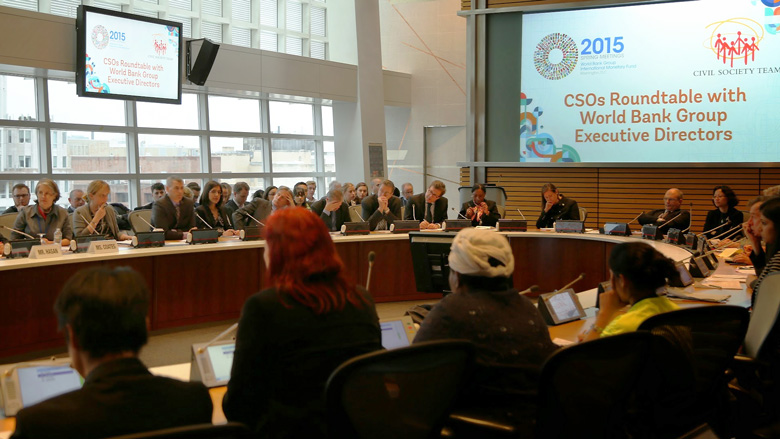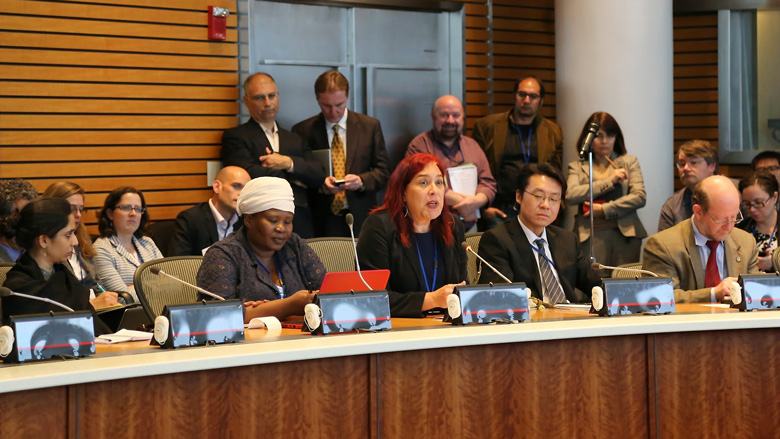The Civil Society Organizations (CSO) Roundtable with Executive Directors (EDs) has become a highly anticipated event at the bi-annual Civil Society Policy Forum. Twice a year, against the backdrop of the Spring and Annual Meetings, civil society representatives from around the world meet face to face with World Bank Executive Directors to discuss the issues they find the most pressing and mutually relevant. It is an important opportunity for those at the helm of the World Bank Group to engage directly with CSOs.
This year, 23 EDs and/or their Alternates, more than ever before, participated in the session co-chaired by Merza Hasan, Dean of the Board and Lindsay Coates, Vice President of InterAction – a coalition of 160 human rights organizations, who moderated the session. What ensued was a candid discussion that did not avoid even the most sensitive topical issues dominating CSO advocacy, and was a testament to the tremendous progress that has been made in recent years to increase engagement between the World Bank Group and Civil Society.
In his opening remarks, Mr. Hasan laid out the opportunities and challenges for development that lie ahead in 2015 and beyond. He stated that continued cooperation between the World Bank and Civil Society would be critical to facing them head on. “Your feedback actually keeps us improving our ability, improving our operations and our development [progress]. So, that’s why it’s very important for us as a Board to have this feedback from you, and have this engagement [in order] to reach our goal, which is eradicating poverty and increasing shared prosperity,” he said.
Prior to opening the discussion, Lindsay Coates called for CSO contributions within the frame of three overarching themes: (1) The Bank’s efforts to mitigate negative impacts of its work and practices; 92) What the institution is doing to frame its work for maximum impact; (3) Emerging issues.
CSOs kicked off their intervention with recommendations that included a call on the World Bank to recognize and protect human rights, especially through the revised Environmental and Social Framework currently being drafted – a topic that remained of clear interest throughout the discussions.
EDs emphasized the importance, but also the challenges inherent in designing safeguards that went beyond “doing no harm” to “maximizing the good”, and stressed the World Bank’s commitment to working with CSOs to try and get it right.


